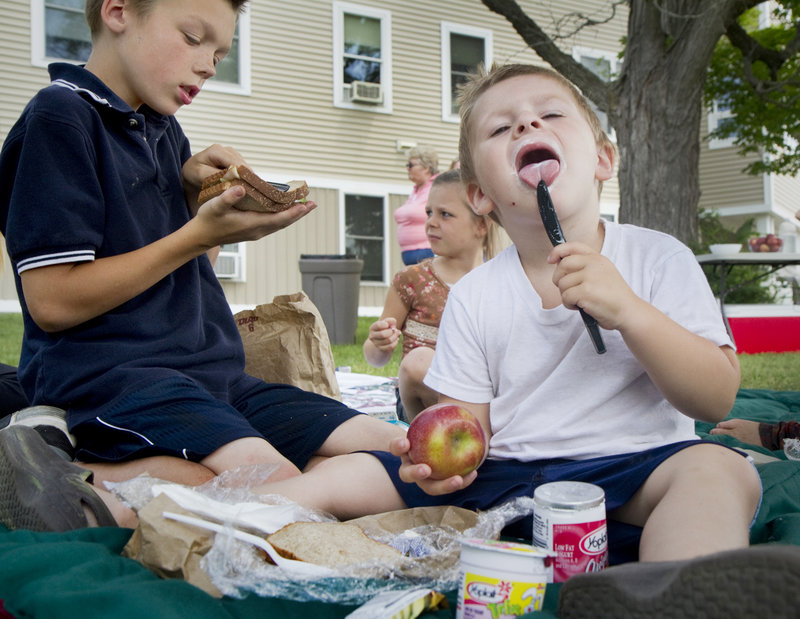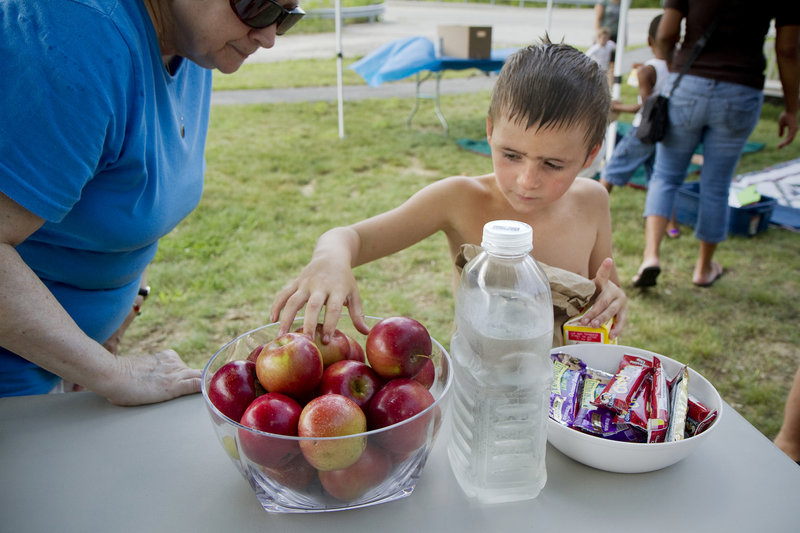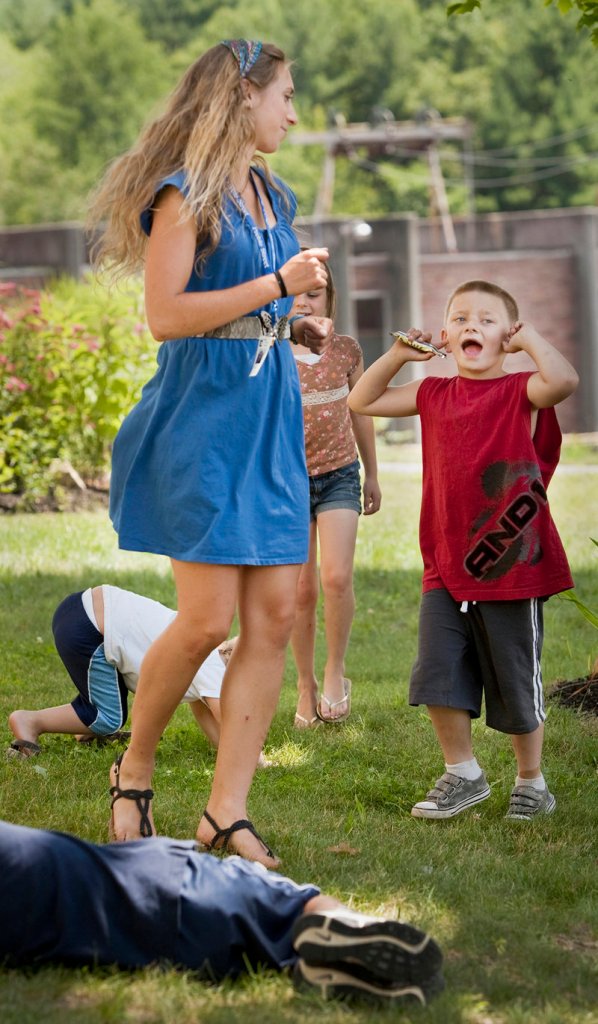WINDHAM – Laura Smith knows how hard it can be to stretch a fixed budget during the summer.
During the school year, two of her three children get free lunch at school. In the summer, it’s up to her to put those meals on the table.
But for the first time, Smith can take her children to Little Falls Landing for a free lunch each weekday. It’s one of a growing number of summertime free-lunch programs in Maine that are trying to reach the nearly 85,000 children who are eligible for free or reduced-price meals during the school year.
There are now 242 summer meal sites in Maine, up from 224 last summer, according to the Maine Department of Education.
During the school year, 100 percent of the 85,000 children get fed. In the summer, when school is out, that drops to 16 percent, illustrating the need for additional sites, said Gail Lombardi, the Department of Education’s program manager for Child Nutrition Services.
State Sen. Justin Alfond, D-Portland, who sponsored legislation that provides guidance to schools for setting up summer meal programs, said, “Students are hungry all year, not just during the school calendar. We must do everything we can to end food insecurity in our communities.”
Alfond said he sponsored the legislation because it was clear that eligible schools weren’t taking advantage of available federal funding, which provides $3.25 reimbursement for every meal served.
A study last year by the Maine Center for Economic Policy showed that while the state received $1.1 million in federal funds through the Summer Food Service Program, another $10 million would have been available if additional meal sites had been operating.
“While we’ve had some success in expanding the number of sites, the sad reality is that we also have more kids who are hungry now than a year ago,” said Garrett Martin, executive director of the Maine Center for Economic Policy. “It’s pretty clear there’s more that can be done.”
Cumberland County has 58 summer meal sites, 40 of which operate where at least half of the students qualify for free or reduced-price meals. They are open to any child 18 or younger, regardless of need.
The Maine Hunger Initiative supports 24 of those sites, including 12 new sites, said Michelle Lamm, program manager for the Maine Hunger Initiative. Those new programs are primarily in the Lakes Region, where the rural nature of the towns can prevent children from getting to the sites easily.
To address that problem in Windham, the Maine Hunger Initiative worked with Saint Joseph’s College’s Bon Appetit meal service and Avesta to serve lunch on the lawn outside of the Little Falls Landing senior housing. Most of the approximately 15 kids who showed up each day this week walked from the neighborhood across the street.
A group of children sprinted across the lawn at exactly noon Friday, eager to grab bag lunches from the residents who volunteer to serve meals and play games. As the children spread out on blankets on the lawn to eat turkey sandwiches, their parents socialized nearby.
Laura Smith came with her children and several others from the neighborhood who needed an adult to walk with them.
“There’s a lot of people in my neighborhood who can’t afford a balanced lunch,” Smith said. “It’s awesome to know this is at least one balanced meal they can have.”
Lamm said the program in Windham is unique because of its connection to a senior housing complex.
Windham schools didn’t qualify for a summer meal site because fewer than 50 percent of their students qualify for free lunch. But Lamm said program organizers recognized there were children in town who could benefit from free meals. The area around Little Falls Landing was chosen because of its concentration of low-income housing and residents.
Eden Slater, an AmeriCorps VISTA worker with the Maine Hunger Initiative who supervises the Lakes Region sites, said turnout in Windham is impressive for a new program. Site supervisors have added games and activities to make lunchtime more fun for children.
As at many sites, most of the children who come for lunch in Windham are younger than 10. Teenagers are less likely to show up because they want to hang out with their friends, not at a meal site, Lamm said.
Organizers at sites across the county are trying to address that problem by running basketball tournaments, showing movies and encouraging teenagers to bring friends for lunch. Volunteers printed 10,000 fliers and distributed them to families through schools and by canvassing neighborhoods.
“The word is starting to get out more, but it can still fly under the radar,” Lamm said.
Charlotte Simpson, property manager at Little Falls Landing, said residents seem to enjoy helping with the program and getting to know the children. They are hoping that more families will discover the program and join them for lunch.
“I’d like to see more teenagers because you know they’re hungry too,” she said.
Lombardi said the Department of Education is contacting site sponsors and trying to find new organizations to open additional meal sites.
Providing free meals can take pressure off food pantries that struggle to provide extra food to families during the summer, and can help children learn better, she said.
“We know from research that children who participate in the summer meal program are more ready to return to school than children who do not participate,” she said. “A lack of food in the summer can contribute to behavioral issues and higher loss of learning during the summer. With poor nutrition, they seem to lose more of that learning.”
School wasn’t on 8-year-old Kylee Keene’s mind as she ate lunch with friends Friday in Windham. She gobbled up her sandwich and yogurt before joining in a game of “Simon says.”
“It’s fun to have lunch here because we have friends here and there’s games,” she said. “It’s a good lunch.”
Staff Writer Gillian Graham can be contacted at 791-6315 or at:
ggraham@mainetoday.com
Twitter: grahamgillian
Send questions/comments to the editors.





